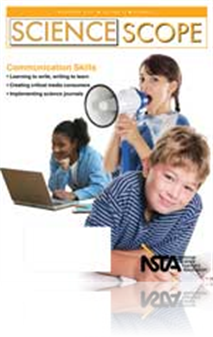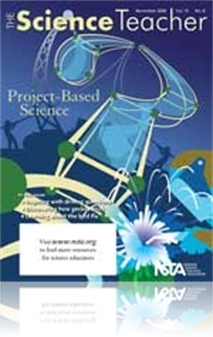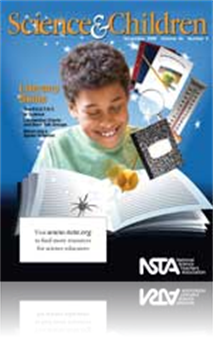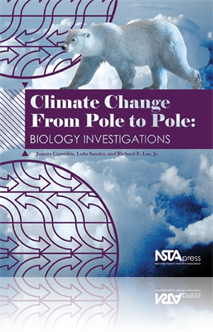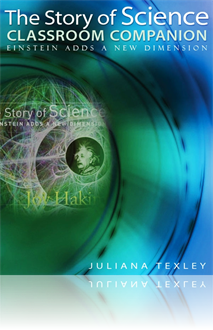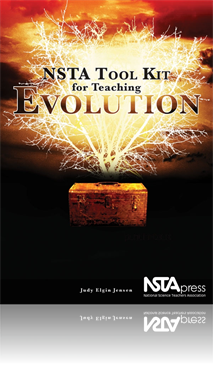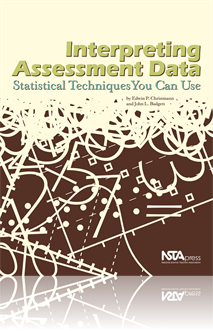All Resources
Journal Article
Science Sampler: Using sheltered instruction to teach English Language Learners
Sheltered instruction is not a commercial program but is a set of instructional practices used specifically with English Language Learners (ELL). It embeds existing instructional strategies such as wait time, visual organizers, group work, and allowi...
Journal Article
One way of implementing project-based science (PBS) is to use problem-based learning (PBL), in which students formulate their own problems. These problems are often ill-structured, mirroring complex real-life problems where data are often messy and i...
Journal Article
Teaching Through Trade Books: It’s About Time
“Is it time yet?” is a cry heard from many a student’s mouth. Is it time for lunch? Is it time to go home? Is it time for recess? Is it time for science? (we can always hope)… and the list can go on and on. Students often equate time with an ...
Journal Article
Every Day Science—November 2008
This monthly feature contains facts and challenges for the science explorer. ...
Journal Article
Understanding how geckos—small lizards belonging to the family Gekkonindae—can “defy gravity” and walk across a ceiling provides a fascinating frame through which students can not only learn valuable content about electrostatic forces, but al...
Journal Article
Designing the Perfect Plant: Activities to Investigate Plant Ecology
Plant ecology is an important subject that often receives little attention in middle school, as more time during science classes is devoted to plant biology. Therefore, the authors have developed a series of activities, including a card game—Design...
Journal Article
Career of the Month: An Interview With Aeronautical Engineer Paul Moller
Engineers are inventors, designers, and creators—they apply science, math, and imagination to make dreams a reality. As they work to craft technical solutions to consumer and societal needs, engineers bridge the gap between scientific ideas and com...
Book Chapter
Now You “Sea” Ice, Now You Don’t
Increasing air temperatures in the last 50 years have dramatically altered the Antarctic Peninsula ecosystem. In this interdisciplinary inquiry, learners use a cooperative approach to investigate changes in the living and nonliving resources of the...
Book Chapter
The Fission Vision: Teacher and Student Editions
Although they may have heard the term many times, students often have difficulty conceptualizing the process of nuclear fission. The kinesthetic simulation, as well as the two suggested applets, are worthwhile activities for clarifying the process o...
Book Chapter
To help elevate your level of active instruction, this chapter provides a sampling of the kinds of hands-on activities that promote understanding of evolutionary processes. These particular activities are structured according to the BSCS 5E Instructi...
Book Chapter
Scales and Number Distributions
Statistics is a branch of science that deals with the collection, analysis, interpretation, and presentation of numerical data. We use statistics every day to solve problems. Geneticist Gregor Mendel, for example, experimented with pea plants, which ...
Book Chapter
Central Tendency and Variability
This chapter presents two important interrelated topics in statistics: central tendency and variability. Measures of central tendency show how similar the data points in a set of data are, while measures of variability show how much the data points v...
Book Chapter
In this chapter, the authors will discuss the following types of standard scores: percentile ranks, z-scores, and T-scores. All are based on concepts—such as the mean, the normal distribution, and the standard deviation—already familiar to you fr...
Book Chapter
This chapter will discuss the concept of correlation, which is used in later chapters that will explain the concepts of validity and reliability. Here, the authors introduce the Pearson correlation coefficient, a statistic that is used with ratio or ...
Book Chapter
In this chapter, the authors will describe the four types of validity: construct validity, content validity, concurrent validity, and predictive validity. Depending on the test and the rationale or purpose for its administration, and understanding of...
Book Chapter
In essence, reliability is the consistency of test results. To understand the meaning of reliability and how it relates to validity, imagine going to an airport to take flight #007 from Pittsburgh to San Diego. If, every time the airplane makes the f...
Book Chapter
Many criticisms have been launched against grades in general because of their perceived failure to portray student achievement accurately. In many instances, these criticisms are just. But, if student grades are reflections of measurable instructiona...
Journal Article
Scope on the Skies: The view from Earth
A practical method for either observing or modeling the view we have of other planets is to focus on planets near the horizon, specifically morning or evening planets and their location relative to the Sun. Planets rising ahead of the Sun are seen ab...
eBook
NSTA Tool Kit for Teaching Evolution (e-book)
Teaching evolution is part of the core biology curriculum, and this new resource provides a teacher-ready summary of the scientific, legal, and ethical talking points for discussion of the topic....
eBook
The Story of Science Classroom Companion: Einstein Adds a New Dimension (e-Book)
The Story of Science Classroom Companion is a boon for teachers who choose master storyteller Joy Hakim’s Einstein Adds a New Dimension as a primary or supplemental physics text. Hakim’s newest title in The Story of Science series brings to life ...
NSTA Press Book
NSTA Tool Kit for Teaching Evolution
Teaching evolution is part of the core biology curriculum, and this new resource provides a teacher-ready summary of the scientific, legal, and ethical talking points for discussion of the topic....
By Judy Elgin Jensen
NSTA Press Book
Interpreting Assessment Data: Statistical Techniques You Can Use
Are you properly evaluating the results of the tests you give to students? Can you explain the difference between classroom assessment and standardized assessment? Are you on solid ground with your grading system? Demystify—and even use—statistic...
By Edwin P. Christmann, John L. Badgett



